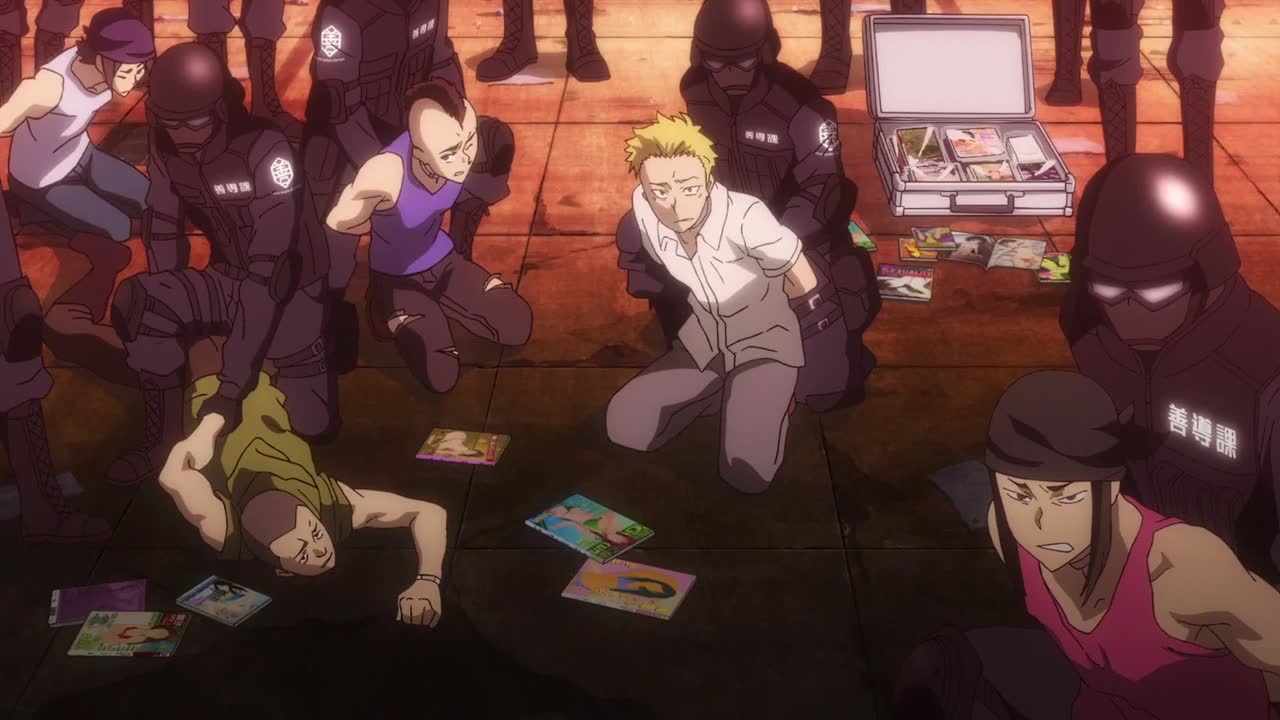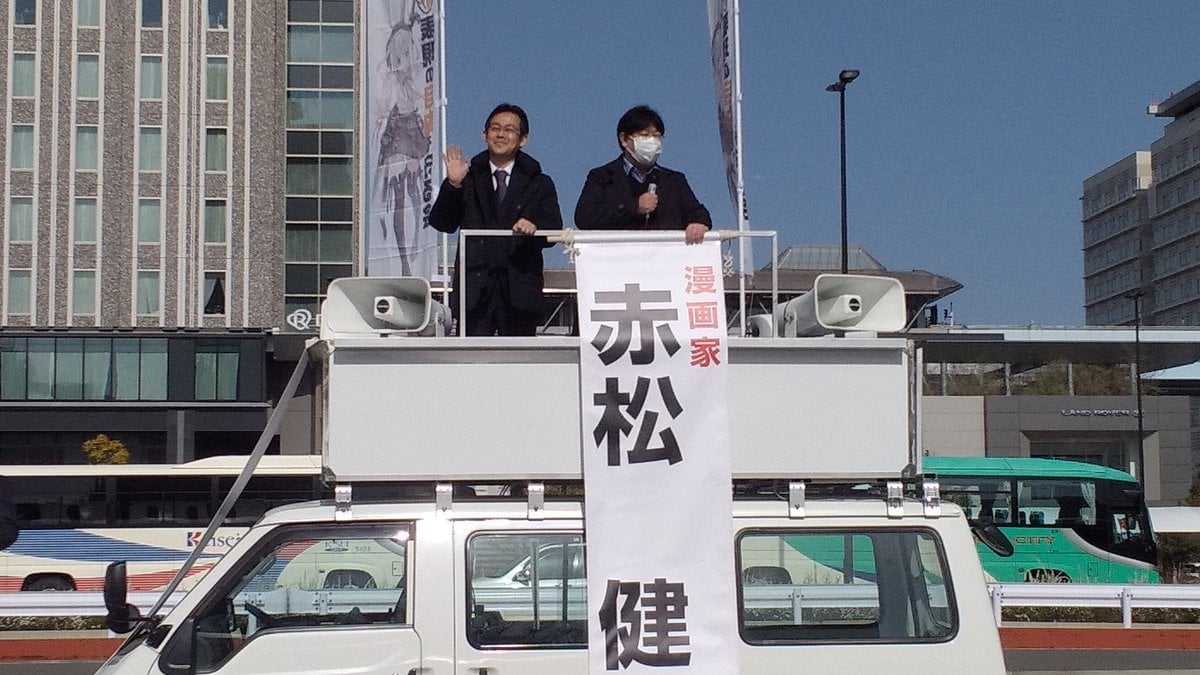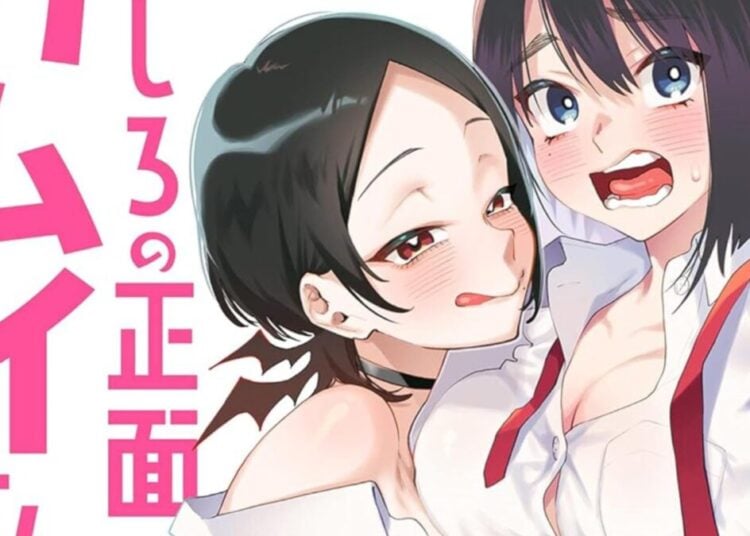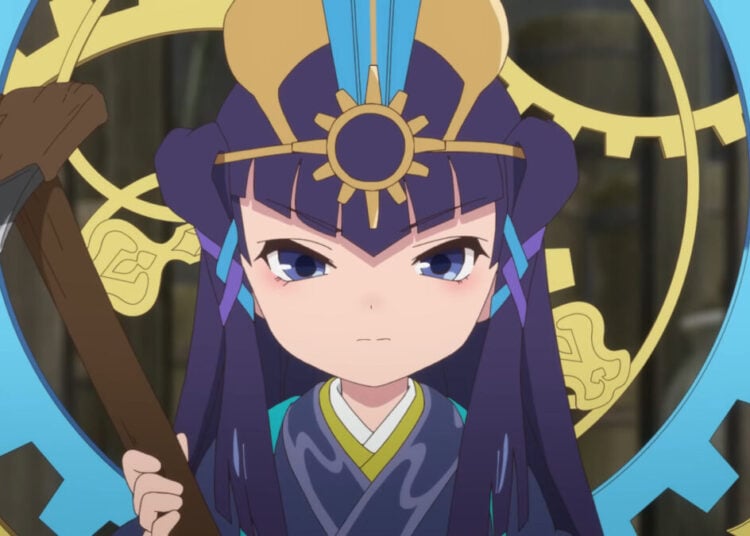Ken Akamatsu has come a long way. From oddities like Itsudatte My Santa!, to Love Hina, and UQ Holder!, he’s left an indelible mark on anime and manga history. Given that consistent passion, as well as his experiences in the industry, it’s little surprise that he’s channeled these towards political aspirations to represent mangaka and otaku. He’s also become vocal in defending free speech in Japan, which has become increasingly topical.
Recently, he landed a bombshell in highlighting new attacks on freedom of expression. More specifically, he’s brought to light a petition submitted on March 24th, 2022, to the Diet’s House of Councilors to amend the 1999 Act on Regulation and Punishment of Acts Relating to Child Prostitution and Child Pornography, and the Protection of Children. Though ostensibly made “in accordance with the United Nations Recommendations in light of the current situation of worsening damage caused by child sexual exploitation“, the petition could have ramifications for fictional work made in Japan if not carefully handled.
更に別の請願が。児童ポルノ禁止法を改正して「子供のように見えるよう描かれた者」の画像を所持禁止(銃や麻薬と同じ)にしようというもの。https://t.co/pbmXTTU7N8
漫画の絵柄について誰が子供と判定するのか。同趣旨の請願が1月、2月にも出ており、作家として、政治家として適切な反論をせねば! https://t.co/Pd0x3hczOC— 赤松 健 ⋈(参議院議員・全国比例) (@KenAkamatsu) March 29, 2022
Yet another petition. It seeks to amend the Child Pornography Act to ban possession of images of “persons depicted to look like children” (the same as guns and drugs).
Who will judge a cartoon drawing as if it was of a child? Petitions to the same effect were filed in January and February, and as an artist and a politician, I must make an appropriate rebuttal!
Submitted by members of the Komeito Party, this is the third petition of its kind this year, with two, identical ones having been filed last January and February. Appealing to the authorities that it “fully consider the recommendations made by the UN Committee on the Rights of the Child to the Japanese government”, the publicly available summary of said petition calls for making drastic amendments to the existing law, namely:
(i) criminalizing the manufacture, distribution, distribution, offer, sale, access, viewing, and possession of images and depictions of children, or persons depicted to appear primarily like children, engaging in explicit sexual acts, or depictions of sexual parts of the body of children for sexual purposes.
(ii) Prohibiting commercial activities that promote or lead to child prostitution and child sexual exploitation, such as “girls’ high school services” and child erotica.…
(v) Recommendations of the UN Special Rapporteur on the sale of children, child prostitution and child pornography (A/HRC/31/5) 8/Add.1, para. (74).
Superficially, it sounds benign and well-intentioned in protecting children. Yet the changes being pushed go beyond expanding what constitutes child abuse and pornography to a considerable degree. These would also encompass whatever could be so much as construed as depicting or promoting such. It’s worth noting that the lead-up to, and initial approval of, the Child Pornography Act in 1999 were accompanied by fears of moral panic and censorship, which were enough to kill off the viability of h-games like Super Real Mahjong in arcades, whether or not they actually fell foul of it. Should the proposed amendments to the law come to pass, however, any fictional work, including anime and manga, could face significant censorship, if not legal action, that would effectively cripple whole industries. That the UN-backed “recommendations” are at once vague, far-reaching, and make no practical distinction between reality and fiction, also makes these all too easy for would-be opportunists to abuse.

Moreover, Ken Akamatsu provided a transcript taken from a parliamentary hearing that brought up those petitions, dated March 2nd, which only serves to underscore those concerns. According to a certain Rintaro Ogata of the Democratic Party of Japan, he wondered “if there is a possibility to criminalize child pornography of non-existent persons, such as anime, manga, and computer graphics (emphasis mine) by imposing certain strict requirements”, the specifics of which aren’t elaborated upon. He further argued that such measures should be done, not just on the grounds of making it easier to prosecute cyber criminals internationally, but also as a way of finally ridding Japan of its apparent reputation of being what he called an “ungrateful, child pornography powerhouse or some other unfavorable term” in the eyes of the world. You’d be forgiven for thinking that it’s the late Shintaro Ishihara’s infamous Bill 156 all over again, especially with the petitions’ “think of the children” rationales and moralistic appeals. Only this time, these would be applied to the entire country, and with pretensions of UN-backed legitimacy.
By that same token, however, it’s not doom-and-gloom, either. There are significant differences from not only the days of Bill 156, but also from when the Child Pornography Act was first passed. Since 1999, otaku and creators alike have grown more visibly vocal, if not proactive in defending freedom of expression. As has been covered previously by J-List, this is far from their first rodeo when it comes to standing up to censorious hijinks. For Akamatsu in particular, this has only bolstered his own resolve to commit to his activism for free speech, as seen in his involvement with several conferences and forums on the matter.
He’s also not alone, given nonpartisan support for such freedoms within the Diet. In an interview on precisely this topic, frequent collaborator and House of Councilors member Taro Yamada highlighted the worrying trends of censorship in the name of gender and political correctness the West is pushing on the country, which could “make it impossible for the creator to freely express what he or she wants to express”. Invoking Japan’s other reputation for having more in the way of such freedoms than other countries, he nonetheless believes that while people should be responsible, they should be able to express themselves. For fans outside the country, you can bet that the Japanese aren’t going to stand idle.

This sentiment has also been echoed by long-time mangaka Miki Matsuda (Yakou Kumo no Sarissa), who has volunteered to assist Akamatsu with an upcoming forum, further remarking:
僕は漫画家としてものを思う存分に描ける環境で育ち、それで飯を食える幸運にも恵まれました。この業界の裾野の広さなしでは到底かなわないことです。この環境をこれからの作家さんたちにも残すのは一オタクであるおっさんのせめてもの貢献かなあと。
— 松田未来 コミックリュウで「夜光雲のサリッサ」連載中! (@macchiMC72) March 29, 2022
I grew up in an environment where I could draw to my heart’s content as a cartoonist, and I was fortunate enough to be able to make a living from it. This would not have been possible without the broad base of the industry. I think it is my contribution as an old geek to leave this environment for future artists.














